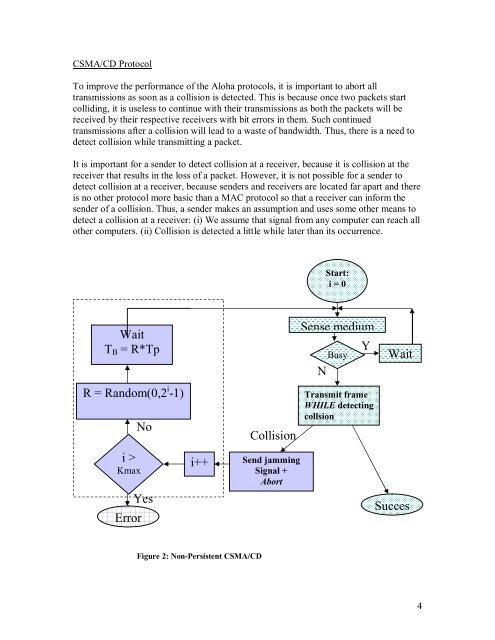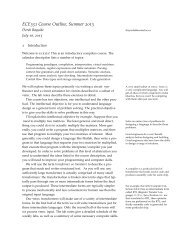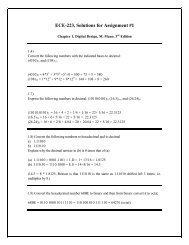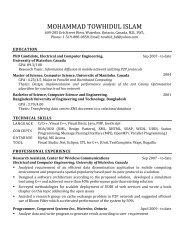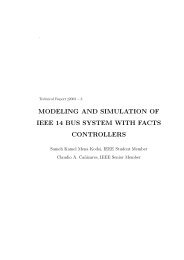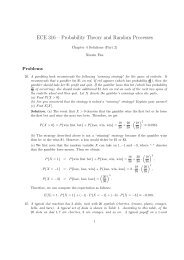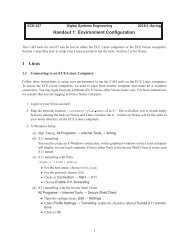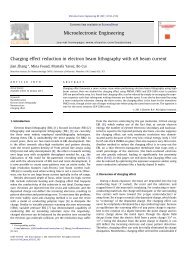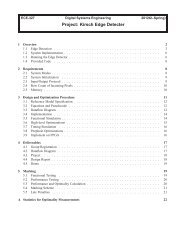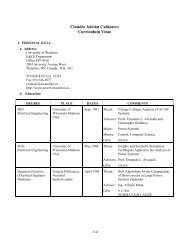LAN - Electrical and Computer Engineering
LAN - Electrical and Computer Engineering
LAN - Electrical and Computer Engineering
You also want an ePaper? Increase the reach of your titles
YUMPU automatically turns print PDFs into web optimized ePapers that Google loves.
CSMA/CD Protocol<br />
To improve the performance of the Aloha protocols, it is important to abort all<br />
transmissions as soon as a collision is detected. This is because once two packets start<br />
colliding, it is useless to continue with their transmissions as both the packets will be<br />
received by their respective receivers with bit errors in them. Such continued<br />
transmissions after a collision will lead to a waste of b<strong>and</strong>width. Thus, there is a need to<br />
detect collision while transmitting a packet.<br />
It is important for a sender to detect collision at a receiver, because it is collision at the<br />
receiver that results in the loss of a packet. However, it is not possible for a sender to<br />
detect collision at a receiver, because senders <strong>and</strong> receivers are located far apart <strong>and</strong> there<br />
is no other protocol more basic than a MAC protocol so that a receiver can inform the<br />
sender of a collision. Thus, a sender makes an assumption <strong>and</strong> uses some other means to<br />
detect a collision at a receiver: (i) We assume that signal from any computer can reach all<br />
other computers. (ii) Collision is detected a little while later than its occurrence.<br />
Start:<br />
i = 0<br />
Wait<br />
T B = R*Tp<br />
R = R<strong>and</strong>om(0,2 i -1)<br />
i ><br />
Kmax<br />
Error<br />
No<br />
Yes<br />
i++<br />
Collision<br />
Send jamming<br />
Signal +<br />
Abort<br />
Sense medium<br />
N<br />
Busy<br />
Y<br />
Transmit frame<br />
WHILE detecting<br />
collsion<br />
Wait<br />
Succes<br />
Figure 2: Non-Persistent CSMA/CD<br />
4


